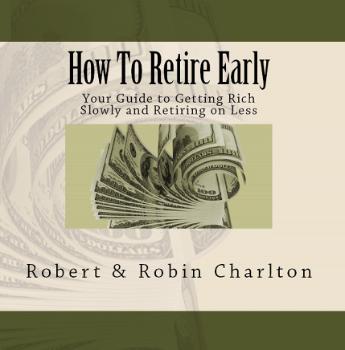

Early Retirement
| How We Retired at 43 |
 | First, get out of debt. Obvious but essential. Pay off credit cards, car | |
| loans, etc. so the only debt you have left is for your home mortgage. |
 | Start saving early. We started saving in earnest at age 31. The earlier | |
| the better, since it gives your investments more time to compound. |
 | Try to do a 15-year home mortgage instead of a 30-year. You'll save a | |
| lot on interest, and the 15 years matches up nicely with an early retirement goal. You'll want to pay off your home before you retire. |
 | Pay an extra $100 towards the principal on your home each month. |
 | Consider renting out part of your home to help offset mortgage costs. | |
| We owned a bi-level home and rented out the bottom half. |
 | Don't try to keep up with the Joneses. Until retirement, we drove the | |
| same cars and remained in the same starter home we started in. Keep your biggest costs (home and cars) as low as reasonably possible. |
 | Figure out what you care about most in life and spend more freely in | |
| that area. For us, that means spending more on travel and less on material possessions (other than camping equipment!). If you feel you're depriving yourself of something you really love, you'll never be able to stick to your plan over the long term. |
 | Settle on an amount you can invest every month and make sure you | |
| invest regularly, regardless of how the market is performing. |
 | Try to put at least 10% of your paycheck into a 401(k) or equivalent. | |
| This is a no-brainer -- usually there's a company match; it comes out of your paycheck automatically; it's pre-tax money so you hardly notice it's missing from your paycheck; AND you save on taxes each year. |
 | Open a Roth IRA and begin socking away as much as you can each | |
| year. You invest already-taxed income but never pay taxes on the money you take out, including the earnings. Great for the long term! |
 | If you plan to retire before age 60, you also need a TAXABLE account | |
| that you can draw from without penalty. In a sense, you need to save for two retirements -- the near-term one and the post-age-60 one. Half of what we have invested is in taxable Vanguard Index Funds for use over our first 15 years. The other half is in 401K and Roth IRA accounts and will remain untapped (continuing to grow) until age 60. |
 | Put together a 15-year plan of how to get where you're going. We use | |
| an Excel spreadsheet that tracks our taxable, 401(k), and Roth IRA investments, with a "Grand Total" column at the end. |
 | Assume a 9% annual return if you are investing in the stock market. | |
| This represents the long-term annualized return of the stock market as a whole (7% adjusted for inflation). |
 | At the end of each year, assess how you are doing against your plan. | |
| We plug actual results into our spreadsheet at the end of each year so we can plan for future years using actual results rather than estimates. |
 | Don't get discouraged if (I mean when!) the stock market goes down. | |
| We did our best investing during the bear market of 2000-2002. We bought stocks "on sale" and reaped the rewards afterwards. |
 | Forget about timing the markets. We recommend picking a handful of | |
| Vanguard Index Funds and investing regularly in those. Vanguard expenses are the lowest in the industry, the funds are tax-friendly, and your investments are spread over a wide range of asset classes. |
 | Specifically, we recommend Vanguard 500 Index Fund (VFINX), | |
| Vanguard Extended Market Index Fund (VEXMX), and Vanguard Total International Stock Market Index Fund (VGTSX). We put 1/3 of our investments into each of the three stock funds -- simple as that. This provides incredible diversification. |
 | We also own Vanguard Total Bond Market Index Fund (VBMFX). When | |
| we sold our home, the equity went into this bond fund, not into stocks. A bond fund becomes much more important once you've retired and are withdrawing money on a regular basis -- it's your "safety net." |
 | Get buy-in from your spouse (if you're married). It's very difficult to | |
| accomplish these goals if the two of you aren't on the same page. |
 | Balance "living for tomorrow" with "living for today." You HAVE to be | |
| an optimist to plan 15 years into the future for an early retirement! But you also have to enjoy life along the way. Both are important. |
| Completely updated for 2018 |
